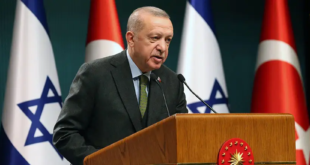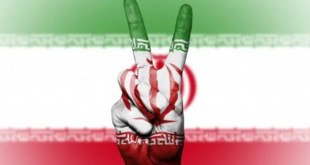UNITED NATIONS (AP) — Qatar’s UN ambassador said a panel of experts had recommended that the Security Council impose sanctions on top Sudanese officials for violating peace efforts in Darfur, and strongly suggested that President Omar Bashir was among them.
The list was sent to the Security Council with an         August 31 report that found that all sides in the Darfur conflict continue to commit “blatant violations” of an arms embargo. It said the rebels appear to have gained strength since March, while the government continues to supply weapons to the Arab militias known as Janjaweed.
The names on the list have not been made public, but Qatar’s UN Ambassador Nassir Nassir said “top people in the government” were on it and accused the experts of trying to spoil the peace process. Asked to elaborate, he made all but clear that Bashir was on the list.
“If we bring a list of the president and the government to the council as a criminal, how can we solve the problem of Sudan? I just want an answer,” he said.
Asked again whether Bashir was in fact on the list, he said: “Everybody is on the list.” Nassir questioned the use of imposing sanctions on government officials at a time when the United Nations is negotiating with it over the expansion of an African Union force trying to stem continued violence in Darfur. The Security Council has demanded that the UN take over peacekeeping in Darfur, but Sudan has refused.
At least 200,000 people have died and some two million have been displaced since the start of a 2003 revolt by rebels from Darfur’s ethnic African population. The Arab-dominated Sudanese government is alleged to have responded to the revolt by unleashing the Arab militias, known as Janjaweed against ethnic African villagers.
In April, the council slapped sanctions on four men involved in the Darfur conflict, the first-ever such penalties imposed in the violence. The four, including a former air force commander, a Janjaweed chief and two rebel commanders — are accused of helping orchestrate and carry out killings, rapes and other rights abuses in Darfur.
That came after the Security Council adopted a resolution in March 2005 authorising an asset freeze and travel ban on individuals who defy peace efforts, violate international human rights law, or are responsible for military overflights in Darfur.
The resolution also authorised the panel to help monitor the arms embargo in Darfur that was expanded to include the government as well as the rebels in an attempt to end the conflict.
The latest report noted that the Sudanese government has not implemented any of the financial sanctions against the four men cited by the Security Council. The document said Sudan’s government has “willfully avoided implementing this resolution.” The government continues to arm the Janjaweed, which have upgraded their weapons from “horses, camels and AK-47’s to land cruisers, pickup trucks and RPGs,” or rocket-propelled grenades, the report said.
US Ambassador John Bolton said sanctions might help win Sudan’s approval for an overhauled peacekeeping force in Darfur.
“One could make the argument that consideration of sanctions might have a positive effect on reaching agreement with the government of Sudan,” Bolton said.
“We’ve never had any hesitation about seeking sanctions when the evidence was there against anybody who committed the offences that the panel of experts is studying.” Britain’s UN Ambassador Emyr Jones Parry, however, said sanctions were not at the top of his country’s agenda.
British prioritites are to reinforce the African Union presence, to improve security and humanitarian relief in refugee camps in neighbouring Chad, where fighting has spilled over, and to convince the Sudanese government that the UN wants to help restore peace.
 Eurasia Press & News
Eurasia Press & News



